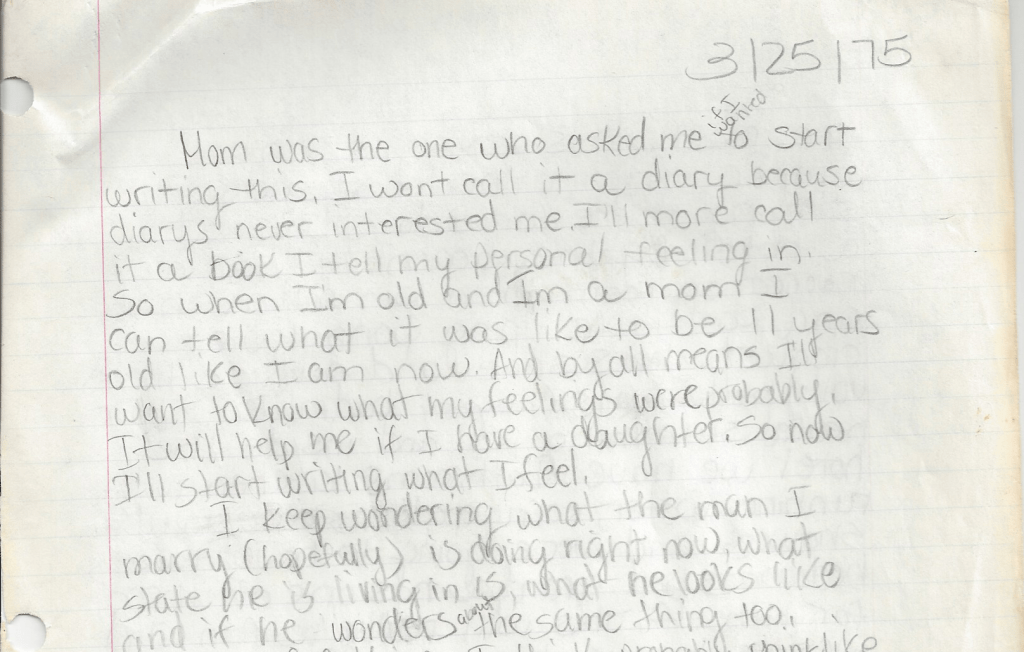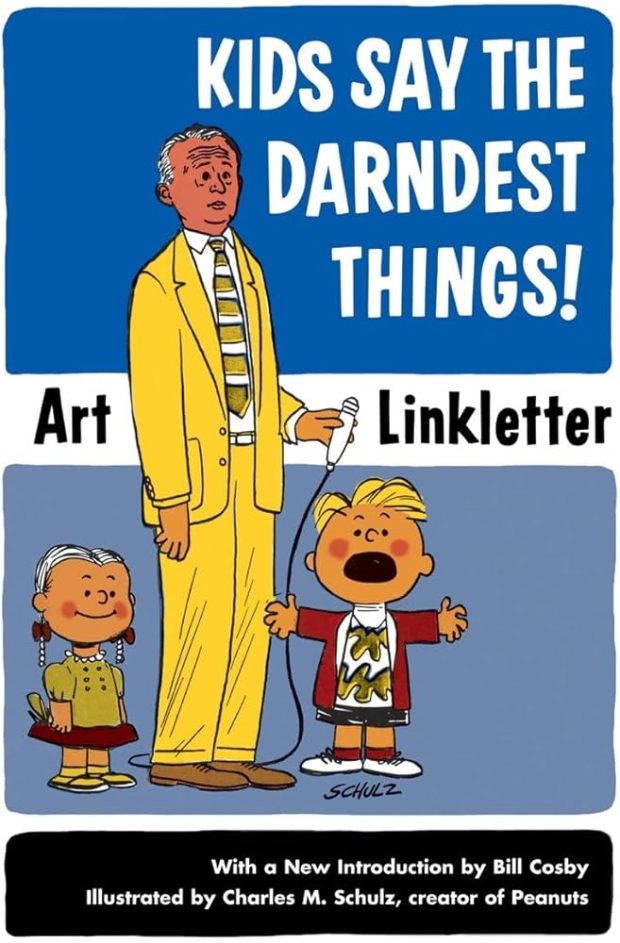This podcast interview talked about playing the “long game” in parenting with more joy and less anxiety. After being interviewed, I wrote down the points in more detail below. I hope either version is helpful to you.
My thoughts about parenting came to the surface after watching “Inside Out 2” recently with my daughter who is a mom of three young children. At the climatic stress point of the movie, there is this key message delivered by the character “Joy”:
“I don’t know how to stop Anxiety. Maybe we can’t. Maybe this is what happens when you grow up. You feel less Joy.”
Riley is a teen now, and struggling with new emotions. Life doesn’t have the simplicity of childhood and the basic emotions have evolved to welcome new ones.
It get it. I like that the movie shows the complexity of growing up and how the array of emotions are not to be misunderstood, but embraced for what they teach us. In other words, we add more emotions as we age, and feeling those emotions add to the landscape of mature emotional intelligence. We shouldn’t shun anxiety or any emotion. But they shouldn’t hijack Joy in the overall picture of our lives.
That statement by the character “Joy” seemed to send a central message to the audience that “as you get older, you have less Joy and more Anxiety.” That can certainly seem reasonable, especially in the role of mother. Raising children is a lot of endless hard work, sleepless nights, and anxiety over the welfare of their souls, health, and happiness for now and their future. But I was bothered by that statement of fact because it gives the impression that growing older is full of dread and unhappiness. I don’t believe that is what life is for.
My daughter disagreed with me. We called my other daughter who is a new mom and she whole-heartedly took “Joy’s” side. I can see why. I’ve been there too. And believe me, I still have worries over my adult children, their spouses, and our precious grandchildren.
So I’ve been thinking about my experience as a mother and an adult for decades. While I see both sides, I don’t believe that joy diminishes. We are not doomed to such a gloomy forecast. In fact, we all acknowledge the joke that grandparenting is way better than parents (all the love and fun and none of the sleepless nights) so it’s true that at some point in our later adulthood, we gain wisdom, perspective, and more peace in relationships, or joy. More deep, mature and lasting joy than we had as a child or young married person. I feel a thousand times more love and appreciation for my husband and children after going through so many life experiences together.
In fact, older adults shouldn’t have the same amount or kind of anxiety we had as younger people. Anxiety decreases with the increase of joy, or at least it takes on a new identity in our lives. Anxiety takes on more a focused purpose in what matters in life but with a healthy amount of long-term perspective. If things aren’t going well right now, we know that it will “all work out in the end.” It reminds me of the insightful book, “Don’t sweat the small stuff…and it’s all small stuff.” This is the kind of maturity older people I know have. They walk life with calm, more patience, and unconditional love.
My thoughts today are what I did as a mom while raising my kids, so it wasn’t “less joy, more anxiety.” There are certainly times when I did this better than others, but I can think of many things I did to help me increase my joy while reducing my anxiety overall.
· Keep learning and growing. I remember when I lived in Chicago as a young mom, I was alone at home all day during the week with no car, and few to no neighborhood friends. I joined a book club out of desperation to talk with other adults and get out of the tiny apartment. I didn’t consider myself a “reader” before that, and I don’t believe I really enjoyed reading a lot before that time. In my A.P. English class my senior year in high school, I didn’t even finish one of the books we had to read for the test! (well, in my defense, it was “Wuthering Heights”, a dry, gothic, boring book by many standards). Anyway, I started reading books in earnest and found I really liked it! Reading took me out of the day-to-day moments of drudgery and elevated me to visit new places, challenge my mind to think deeply, step into the minds of characters that taught me many profound lessons in life, and impacted me in untold ways. I was never much into history in my earlier years (back in high school again, I actually figured out a way to substitute the required History class for something easier! You can see I wasn’t much of a scholar in high school—super average intelligence and ambition). But now, after reading some amazing historical novels and nonfiction about history, I am hooked! When I learn about other people and times past, I am always forcefully reminded that my life is amazing. I wouldn’t want to be living at any other time in any other place. I am overwhelmed with gratitude for what I have and that translates into my being a better mom, wife, and person. Gratitude = Joy. Now that there are audio books, it’s easy to listen to good literature throughout the day so that mundane chores are not the focus. Books are just one of endless ways to keep growing and learning.
· Cultivate good friends. My husband and I began a monthly dinner group when we were first married, and those relationships have stayed with us forever. I have nourished friends by reaching out to those who would be good, stable, healthy people in my life. Get together in person, rather than defaulting to virtual, if possible, which is not as real or helpful. I take out friends to lunch on their birthday. I gain new friends through community service. I started a playgroup with other mothers and kept it going for the next three children during their preschool years. If you are a mom, do whatever is necessary to have a support system of healthy women that will bless you with less anxiety over things that don’t matter and bring you an increase of joy.
· Ground your spiritual self. There is a body of literature, research based, giving us evidence that tapping into a higher power and grounding ourselves with that relationship is so affirming. This is the theme of C.S. Lewis’ book, “Surprised by Joy.” I think there’s many aspects in daily worship, study, and prayer that brings us joy. One is that we aren’t burdened by being in charge all the time. I can lean on someone who is infinitely merciful and intelligent and loves my kids too. I’m more in tune with the divine in me and the divine worth of my children. I can surrender my anxiety to Him. It’s the “Jesus take the wheel” type of approach (if you’re into country music). When I think of eternal, heavenly perspectives, the earthly stuff sorts of melts away and doesn’t matter as much. It’s similar to the “5×5 Rule.” Here’s how it works:
- When faced with a problem, ask yourself if it will matter in five years.
- If the answer is no, give yourself five minutes to acknowledge the issue, process your feelings, or take action.
- Then, consciously decide to move on.
That brings me joy.
· Find hobbies and interests. Besides being a mom 24/7, remember you are also a person. Don’t get so drowned in motherhood that you forget who you are. That person existed before marriage and should continue to develop after. This applies to fathers as well. Men who are breadwinners can get consumed by their worldly professional identity. You are more than only a mom or dad. Take time to out to be you. Do what you love. Create the things that you find joyful. You’ll discover interests along the journey of life so keep yourself open to them. But everything in its season. You don’t need to have it all, all right now. Pace yourself.
Doing hobbies together with your partner strengthens your marriage. I kept a secret desire to be a beekeeper until I finally brought it up to my husband about 20 years into our marriage. Let’s just say he wasn’t buzzing with excitement about it at first. After taking some classes and getting a mentor, we jumped into that hobby together. We were even interviewed by a journalist in the Wall Street Journal who wrote about the benefits of finding shared interests as adult companions, not just sharing the interests of raising children together. It enriches our relationship and makes us more interesting parents.
· Nurture your marriage. This goes along with my previous point. Children come through us for a short time and are gone all too soon to live their own lives. What doesn’t change and through it all is our own marriage which should not suffer from the demands of parenthood. Parenting is for a season; marriage is for life. Take time out for dating and time together throughout your life because it will return to the two of you again once the children are gone. Marriage is the tree from which we grow fruit, or our children. The degree of joy you will feel in those later years will depend on how strong and loving is that relationship, or how you have nurtured the tree. Too many marriages are devoid of joy because the parents put all their time and energy into their kids and starved each other of the love that was needed to grow.
· Take care of your health. If you aren’t happy overall, it may be linked to physical, emotional, or mental health. If you are wrapped up in anxiety and cannot see the purpose of your daily drudgery, you need to attend to your health. Do what is necessary to exercise (even a 30-minute walk around the block each day without kids), eat healthier (diet makes a huge difference in how resilient or depressed we feel), and get the rest needed. I know more than anyone that adequate sleep and rest can be a joke as a mom. I did not function well when I was running on lack of sleep. I know how that is. We are at the mercy of children’s sleep schedules. But there are still ways for self-preservation. Figure out what that looks like for you and try out different things. Going into nature is one of the best anti depressants there is. See a doctor if you need medicine for mental or physical health. Don’t give up and keep searching for the right answers for you.
· Don’t compare and envy. You might have heard the saying, “Comparison is the thief of joy.” I’m grateful I was raised in a non-social media era so I didn’t have to see fake, staged, and exaggerated lives of others. I was happy to be who I was and content with my life. I still am. I don’t want more, more, more that I see everywhere because from what I’ve learned, the unhappier and stressed out it makes people. I’ve intentionally chosen to live more simply because it makes more room for joy, peace, and contentment.
Parents have the task of managing how to protect their life from influences in this modern, social media era that would bring them down and crowd out peace. Not only is it a time waster, but causes anxiety, depression, and false envy.
This also relates to comparing yourself now to what you want to become. I would never want a parent to look at my list and think of all the things you aren’t doing and make yourself feel bad about that. Believe me, I have not done all these things perfectly right all the time. I could make this a separate point, but I’ll add here that a “Gratitude Journal” has been proven to be a powerful tool in reminding us of the little but beautiful things we already have and are. Each day is a gift with many small moments of wonder and goodness. Making a short list of what good happens each day, or week, and you will focus less on what you aren’t doing, or the problems with your kids/spouse, and remind you of all that is going right in your small corner of the world. Bonus points: share your list with your family at breakfast or dinnertime to verbalize your gratitude for them and for life. You’ll see wonderful things happen.
· Serve others. There is so much research behind this one. Lifting someone else releases good feelings, or a natural “helper’s high”. This happens when the brain’s reward center is activated, releasing endorphins, dopamine, and serotonin. A very simple thing can make a big difference. Smile at the parent in the grocery line who has small children and let them go in front of you, or someone who is elderly, or chat it up with those in line. Take a meal to a sick neighbor or invite over a new family to dinner who has moved into your neighborhood. Serve in the community if you have time. Large or small, it all adds up.
So the point of this list is to pass down my wisdom and experience and perspective, for what it’s worth. If you find anything valuable that you want to integrate more, do it in small steps, do it in the best season of your life, and find more joy, less anxiety over time.
Photo credit to Google Images












